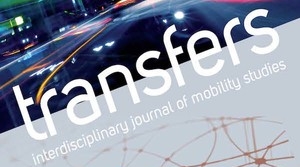Railway Territorialities: Topology and Infrastructural Politics in Alpine Italy

W czasopiśmie Transfers: Interdisciplinary Journal of Mobility Studies ukazał się artykuł dra Mateusza Laszczkowskiego pt. "Railway Territorialities: Topology and Infrastructural Politics in Alpine Italy". Artykuł opowiada o tym, jak różnego rodzaju linie kolejowe historycznie kształtowały relacje społeczne i poczucie terytorium w dolinie Val di Susa, oraz jakie efekty w odniesieniu do tych procesów ma obecnie projekt nowej, szybkiej kolei, odrzucany przez mieszkańców.
Artykuł jest częścią specjalnej sekcji tematycznej poświęconej społecznym i politycznym aspektom kolei.
Abstract:
This article examines transportation infrastructures’ capacity to produce and transform social space through a focus on the contested history of railway development in Valsusa, Italy. I draw on participant observation and interviews with local residents and activists during ethnographic fieldwork in 2014–2015. I first describe how railways helped form modern sociality in Valsusa in the twentieth century. Subsequently, I explore contrasting topological effects of a projected high-speed rail through the valley. For planners envisioning a trans-European space of exchange, the railway is a powerful way to “shrink” space; for local residents, this implies reducing Valsusa to a traffic “corridor.” Yet their protest generates new social relations and knowledges, giving rise to a notion of “territory” as unbound and connected to a transnational space of resistance to capitalist expansion.
Artykuł (dostęp zamknięty) można znaleźć pod linkiem


